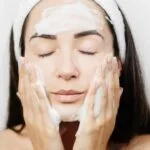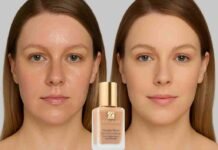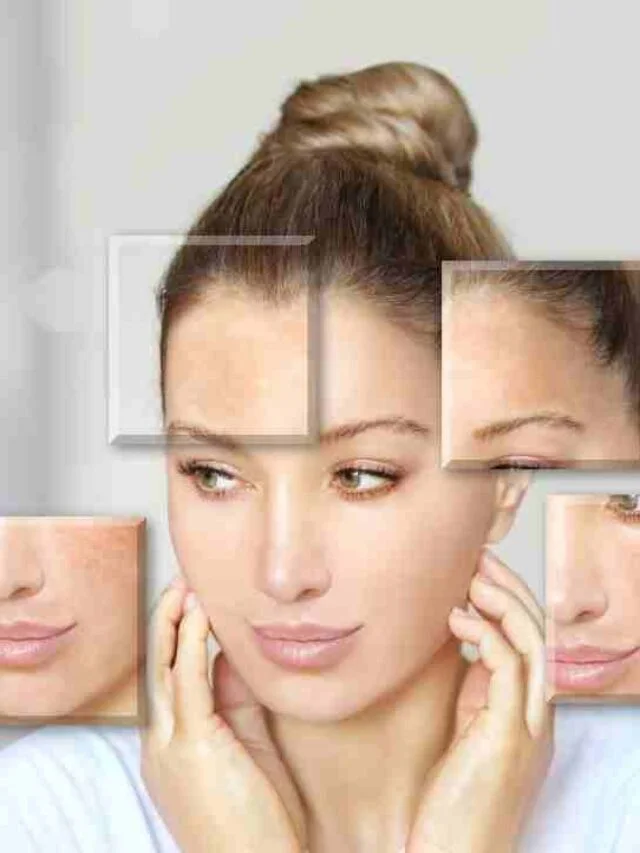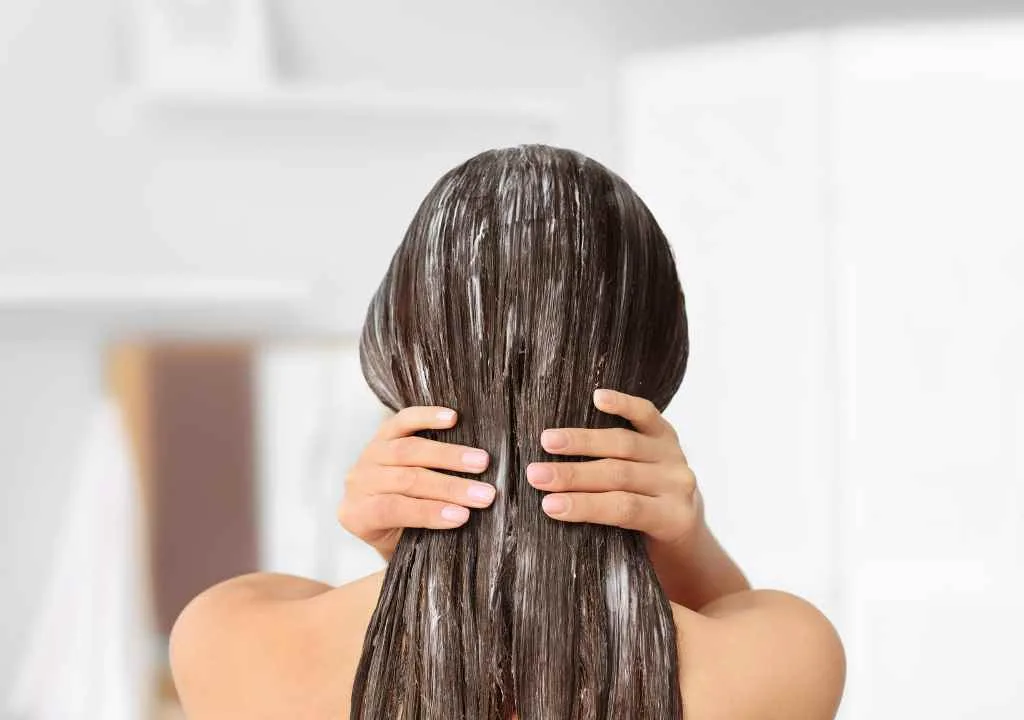Simultaneously struggling with acne and sensitive skin can feel overwhelming. Finding the best acne face wash for sensitive skin often seems impossible—harsh cleansers irritate, and mild ones fall short. Thankfully, this guide simplifies your search with dermatologist-recommended cleansers tailored specifically for sensitive, acne-prone skin.
🏆 Quick Picks: Best Acne Face Washes for Sensitive Skin
Table of Contents
We tested 10 face washes and selected these 6 as the absolute best for most sensitive skin types. Scroll down for alternatives if you have unique needs.
| Rank | Product | Best For | Key Ingredients | Price |
|---|---|---|---|---|
| #1 | CeraVe Hydrating Facial Cleanser | Normal/Sensitive | Ceramides, Hyaluronic Acid | $15 |
| #2 | La Roche-Posay Toleriane Hydrating Gentle Face Cleanser | Normal/Sensitive | Niacinamide, Ceramides | $20 |
| #3 | Neutrogena Oil-Free Acne Wash | Moderate Acne | Salicylic Acid (2%) | $8 |
| #4 | Vanicream Gentle Facial Cleanser | Very Sensitive Skin | Free from Fragrance, Dyes | $9 |
| #5 | Paula’s Choice CLEAR Pore Normalizing Cleanser | Severe Acne | Benzoyl Peroxide (2.5%) Salicylic Acid (2%) | $18 |
| #6 | Differin Adapalene Gel Cleanser | Oily/Sensitive/Severe Acne | Adapalene (0.1%) | $12 |
Understanding Sensitive Skin and Acne
Sensitive skin is a fragile matter. It easily reacts to any outward aggressions, generally turning red, itchy, or flaky. Imagine how frustrating that must be when you are dealing with acne, too!It’s a delicate balancing act—calming inflammation while effectively treating breakouts.
Acne is a very common skin condition, resulting in the blockage of pores. This will eventually develop into a whitehead, blackhead, or a painful pimple. These different versions of acne range in degree, from mild to severe, and all have their own issues.
Now comes the catch: sensitive skin and acne very often go together. Harsh treatments for acne further irritate sensitive skin, spiraling into a vicious cycle of irritation and breakouts. Don’t worry; you can strike the right balance. Let us see how to soothe sensitive skin at home in 4 steps with the correct face wash.
How to Choose the Best Acne Face Wash For Sensitive Skin
The perfect face wash for sensitive acne-prone skin really does sound like some kind of miracle to be hunted down. Do not fear; we shall walk you through it.
- First, know your skin type; oily, dry, or combination? Knowing this narrows things down a bit. Secondly, how bad is your acne? Mild acne will just do fine with gentle cleanser; in moderate to severe acne, harsher ingredients are required.
- Budget is still another consideration. All ranges are represented with very good choices. Remember, the most expensive does not mean best.
- Now that you have an idea what you’re looking for, it’s time to read the labels. Seek out the ingredients we discussed that are good and avoid known irritants.
- Finally, test the new face wash on some small skin area before using it regularly to make sure that there’s no allergy and sensitivity.
By following the above steps, you’ll get pretty close to finding the right face wash for sensitive skin. Now, let’s delve into some individual options in detail in the next section.
Key Ingredients to Look For in the Best Acne Face Wash for Sensitive Skin
Do you want the best acne face wash for sensitive skin? Well, picking it’s a lot like piecing together a skincare puzzle. The pieces you choose will determine how your final picture turns out. So let’s break down the ingredients to look for and what to avoid.
- Acne fighters: Salicylic acid and benzoyl peroxide are both very important. Salicylic acid is generally referred to as a beta-hydroxy acid, or BHA, that gets burrowed into pores and consequently breaks up the oil and dead skin cells that keep forming from acne. On the other hand, benzoyl peroxide acts against the bacteria responsible for acne as a strong antibacterial. It does not reduce inflammation but rather accelerates healing.
- Soothing ingredients: This will help soothe itchy skin. Aloe Vera is known for its rehydrating and anti-inflammatory functions to rid redness and irritation. Hyaluronic Acid is a humectant that magnetically attracts and draws moisture into the skin, providing extra hydration without clogging pores. Soothing, anti-inflammatory, and antioxidant, Chamomile shall smoothen and protect the skin.
According to Draelos (1997), individuals with sensitive skin should avoid aggressive acne treatments and instead choose cleansers with barrier-repairing ingredients like ceramides and hyaluronic acid to reduce irritation and maintain skin hydration.
- Ingredients to avoid: These are the ingredients that one really needs to avoid: harsh sulfates that will take away natural oils from the skin, leaving the skin dry and very irritated. These artificial fragrances can induce an allergy in most people. Ingredients containing such things should be avoided to prevent sensitivity reactions. In addition, seek out products that won’t cause comedones, as this will further block pores and predispose someone to acne.
Products can be formulated properly to treat acne yet remain gentle to sensitive skin if well-chosen ingredients are utilized and irritating agents are eliminated.

10 Best Acne Face Washes for Sensitive Skin Reviewed
The best acne face wash is chosen, much like any other skincare product, by knowing your skin type and how bad your acne is.
1- Normal to sensitive skin
Hydrate without overgreasing, the delicate balance that cleansers for normal to sensitive skin must strike. A combination of hyaluronic acid, ceramides, aloe vera, and chamomile can help retain the skin’s natural moisture barrier, while niacinamide has anti-inflammatory effects and alleviates sensitivity. Be wary of harsh surfactants, added fragrances, and alcohol. For this skin type, think about the fragrance-free CeraVe Hydrating Facial Cleanser or the highly sensitive skin-formulated La Roche-Posay Toleriane Hydrating Gentle Cleanser.
2- Oily, Sensitive Skin
Balancing oil production and sensitivity can be challenging. Look for oil-free cleansers with ingredients that target both concerns. Salicylic acid, niacinamide, zinc oxide, and tea tree oil can help regulate oil, reduce inflammation, and unclog pores. Avoid heavy, comedogenic products and harsh exfoliants. Popular options include Neutrogena Oil-Free Acne Wash, containing salicylic acid, and Differin Adapalene Gel Cleanser, offering retinoid benefits for acne and skin texture improvement.
3- Combination and Acne-Prone Skin Recommendations:
It can be an absolutely different problem when one has a combination skin, as areas of oily and dry skin exist together. Gel cleansers are usually very good at cleaning oilier areas of the face, such as the T-zone, without drying out excess oils too much. Keep an eye out for formulas that feature salicylic acid, which is only moderately comedogenic and will keep breakouts at bay.
Here, a CeraVe SA Cleanser will be a very good choice. Even foaming cleansers will work on combination skin types if they are light enough not to dry out the dry areas further.
4- Best Acne Face Wash for Dry, Sensitive Skin:
Dry and sensitive skin does require a very gentle cleanser, however, so that it cleanses without washing away an excessive amount of natural oil. Cleanse your face with cream cleansers for maximum nourishment. In such, lookout for active ingredients such as ceramides, hyaluronic acid, shea butter, and oatmeal. Such ingredients help restore the moisture barrier of the skin and further rehydrate dryness.
More popular ones would be Cetaphil Gentle Skin Cleanser and Vanicream Gentle Facial Cleanser for dry and sensitive skin. Instead, oil cleansers are very good in washing and removing impurities and makeup without drying—sucking the natural oils from your skin. However, one has to be very sure that it is non-comedogenic. Of the more favored ones, there is the DHC Deep Cleansing Oil.
You May also like to read: Hydration Hero: Is Byoma Hydrating Serum Good for You?
5- Combination, Sensitive Skin
This needs to be an approach balancing oily and dry areas with sensitivity in mind. Look for cleansers that will hydrate dry patches without firing up oily areas. Ingredients such as hyaluronic acid, zinc oxide, aloe vera, and niacinamide control oil, calm irritation, and offer hydration. Keep away from over-cleansing, harsh scrubs, and clog-pore-forming ingredients. Be sure to consider something like Clinique Anti-Blemish Solutions Cleansing Gel for oil control or CeraVe Foaming Facial Cleanser for a gentle, gentle clean.
6- Acne Severity Recommendations:
Cleanser is another treatment that plays a big role in treating acne. The kind of cleanser one will use will depend on the severity of acne. In case one has mild acne, gentle cleansers containing salicylic acid or benzoyl peroxide are effective. In our view, Paula’s Choice Clear Skin Anti-Redness Cleanser and PanOxyl Acne Foaming Wash will be the best options to consider.
Moderate to severe acne should involve a dermatologist since they are going to provide the stronger medication for acne. One should consult a dermatologist since he is going to prescribe stronger medication on issues of acne and the suitable cleanser to use.
General Tips for Sensitive Skin
Consider the following general tips to keep your skin at its best:
Patch Testing
Always patch test any new skincare product before using it. The test area is mostly off the wrist, on the inside. Apply a small amount of the substance there and wait for some time to check for any side effects. This prevents allergic reactions and irritations.
Consistency
This will essentially mean that one has to be consistent in efforts to ensure clear and healthy skin. Using the right cleanser consistently and following up with a good skincare routine regularly is better than doing it sporadically.
Moisturizing
Even oily skin needs to be moisturized. This may sound a bit contradictory, but when the skin is well-moisturized, oil production gets balanced, and formation of excessive dryness that may stimulate more oil production is avoided. Use a lightweight, oil-free moisturizer and one that best fits your skin category.
By following these general tips and personalizing your skincare routine, you will be well on your way to having healthier, more beautiful sensitive skin.
You may also like to read: Top 5 K-Beauty Serums: Discover the Ultimate Skincare Transformation
Sensitive Skin Care Routines:

In acne-prone sensitive skin care, aside from choosing the right cleanser, different variables will also play a part in dealing with daily needs. A better matter is to have a gentle care regimen for the skin in terms of cleaning, moisturizing, and sun protection. Avoid scrubbing too hard; try to opt for a softer exfoliation method. Utilize fragrance-free and non-comedogenic products to prevent one’s skin from becoming irritated and clogged.
1- Cleansing
The best cleanser for sensitive skin would have to be fragrance-free and hypoallergenic, or especially prepared for sensitive skin. Scrub cleansers, of course, are a big no, just like foaming cleansers, for it can definitely dry up the skin because of the stripping of natural oils in the skin acting as emollients. Also, it will gently remove dirt, oil, and makeup without interfering with the skin’s protective barrier.
2- Moisturizing
This is a mild, non-irritating formula that will clean the skin without disrupting the protective skin barrier. Efficiently removes dirt, oil, and makeup. Keep the sensitive skin very well moistened. The light and oil-free moisturizer will provide the required amount of moisture without clogging up the pores. Check for hyaluronic acid in the content since that is a strong humectant that helps the skin lock moisture in. It might just help avoid those standard issues of dryness, flakiness, and irritation in sensitive skin. Read our guidelines to buy the right facial moisturizer
3- Sun Protection
Everyone needs sun protection—not just those with sensitive skin. Slather on broad spectrum sunscreen with at least SPF 30 daily, whether it’s raining or shiny outside. Go for non-comedogenic formulas so you don’t clog pores. Sun damage worsens acne and hastens premature aging; thus, sun care is very essential to keeping a healthy glow every day.
4- Gently Exfoliating Sensitive Skin
Exfoliation has an important role in maintaining your skin as it helps the dead skin cells, which sit on top of it, to be subtly washed away and unclogs your pores for new skin renewal. However, a great many of those with sensitive skin need much more tender handling. Research by Arif (2015) confirms salicylic acid’s gentle exfoliating properties, recommending concentrations between 0.5% to 2% for sensitive skin due to its effectiveness in clearing acne lesions without causing severe irritation.
5- Avoid harsh physical scrubbing
That might irritate the skin or even damage its protective barrier. A better alternative is the use of chemical exfoliants containing alpha-hydroxy acids (AHAs) or beta-hydroxy acids (BHAs). These work by ‘ungluing’ the bonds; for example, a bond stuck to a glue corresponds to dead skin cells.
6- Begin slowly
with a chemical exfoliant. Start off at once a week and slowly increase to a level that feels right for your skin. Note that over-exfoliation should be avoided because it can cause sensitivities and irritation.
Note: Exfoliation is just one part of a balanced skincare routine. Combining it with gentle cleansing, moisturizing, and sun protection will bring healthy, glowing skin.
Diet and Lifestyle Factors
Although diet itself does not necessarily render a person prone to acne, it is highly likely to influence breakouts. Consult a dermatologist or a registered dietitian for possible triggers. Dairy, sugary foods, and processed foods seem to have a negative impact on skin for some people.
Stress may increase acne. Add some relaxation techniques into your routine—yoga or meditation will help. Get some rest; skin regenerates when you are sleeping, and 7-8 hours per night keeps you healthy
When to See a Dermatologist?
If one has severe acne, persistent acne, or acne that is resistant to treatment, he should consult a dermatologist. A dermatologist can diagnose the acne type one has and prescribe proper medication or treatments for it.
Following these tips and availing yourself of a dermatologist when needed will definitely keep your acne-prone, sensitive skin under control and clear up your complexion.
The quest to find the best acne face wash for sensitive skin and acnegenic skin can indeed be tiring, but it’s surely time well spent. Understanding your skin type, the severity of your acne, and the ingredients to look for will make a difference in your decision. In addition, this cleanse should be gentle and support a healthy skin barrier, but be effective against acne.
Experimentation is the key. What works on the one may not work on the other. Do not be afraid to try different products until you’ve found that perfect match for your skin. Armed with patience and persistence, your skin could be clear, healthy, and happy.
Remember: Always opt for gentle, fragrance-free products, and if necessary, a visit to a dermatologist for personalized advice in cases of severe or persistent acne.
Best Acne Face Wash for Sensitive Skin FAQs
How Often Can You Safely Use Acne Face Wash on Sensitive Skin?

If you’re using a gentle cleanser with mild ingredients (like salicylic acid and ceramides, found in our top pick, CeraVe Hydrating Facial Cleanser), you can safely use it once or twice daily. For stronger active ingredients like benzoyl peroxide, start with 2- 3/week and monitor for redness. Dermatologists recommend the ‘lather and leave’ method for 30 seconds before rinsing to minimize irritation.
Acne Face Wash Burned My Sensitive Skin – Emergency Fixes
1️⃣ Stop immediately & rinse with cool water
2️⃣ Apply aloe vera or colloidal oatmeal (not moisturizer if blistering)
3️⃣ Avoid ALL activities for 72 hours
4️⃣ Switch to our #4 pick (Vanicream) – no burning ingredients
If swelling occurs, seek medical help ASAP.”
Why Haven’t I Seen Results From My Acne Face Wash Yet?
Sensitive skin requires 6-8 weeks minimum for visible improvements. Track progress weekly with photos under consistent lighting. Warning signs you’re using the wrong product:
Increased redness after 3 weeks
No reduction in blackheads after 4 weeks
(Switch to our #2 pick i.e. La Roche-Posay Toleriane Hydrating Gentle Face Cleanser if this happens)
The Shocking Truth About Exfoliating Sensitive, Acne-Prone Skin
Myth: Exfoliation always worsens sensitive skin.
Truth: Gentle chemical exfoliants, like mandelic acid (5%), can actually strengthen your skin barrier and reduce breakouts when used weekly. However, beware of harsh physical exfoliants that cause tiny skin injuries (microtears):
❌ Walnut shells
❌ Plastic microbeads
❌ Ground fruit pits
Instead, try a gentle chemical exfoliant like the 0.5% salicylic acid found in our #3 recommended cleanser, which safely removes dead skin cells without irritation.






















